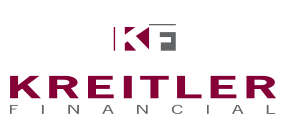As we look back to 2020, the landscape of home buying created many challenges for would-be buyers. Many faced a competitive market with bidding wars and homes selling above the asking price in a matter of days.
In the frenzy, I heard countless stories about buyers emptying their liquid cash on the down payment to put in the most competitive offer. Not good. Spending all your cash savings means you have no safety net designed to cover unexpected expenses and home repairs.
Emergencies are never fun, and they tend to trigger some form of chaos and discomfort. With a proper emergency fund (and preparation), you will be able to manage the hardship with a clear and worry-free mind.
In this article, we will explore the question on everyone’s mind – how exactly can I build a buffer between myself and life’s unexpected costs?
Understanding Emergency Funds
An emergency fund is a solid foundation for any financial plan. Sometimes called a ‘rainy day’ fund, an emergency fund is exactly what it sounds like; a pool of liquid assets that is available to you when you need it. It provides that first layer of financial stability. Without one, you might find it difficult to pay for unexpected costs when they arise.
In determining the size of your emergency fund, consider the length of time you could live on it with your current expenses. A couple with two incomes might build up savings to manage three to six months of expenses. The amount may vary depending on your lifestyle, job security, and income stream. If you lose your job, become ill, or have a large expense like replacing a water heater, you might benefit from having liquid cash in an emergency fund to ride through that period.
Importantly, you’ll need to replenish your savings after an emergency. This may require you to create a budget and dial back on some unnecessary expenses to build your savings back up.
Where to Keep Your Emergency Fund
Savings Account
For quick access to money, you might accept a lower interest rate by keeping cash in a bank account. Your money is generally available immediately; however, some banks may take a few days for transfers. This option is great for simplicity and managing day-to-day cash needs.
Money Market Fund
If you prioritize yield on your cash holdings, you might consider investing in a money market fund. These are a type of security that owns very short-term loans measured in days and issued by
governments or corporations. If you don’t need immediate access to funds, this can be a great way to get a competitive yield on your cash. You must trade to buy or sell money market funds, and it typically takes a few days for the trade to become available.
Advanced Tips
As you build up your cash reserves, consider the impact inflation has on your holdings. Cash and cash alternatives are generally considered to be safe for protecting your investment principal, but there is an important risk to consider. Holding too much cash carries the risk of inflation eroding the purchasing power of cash over time. This means every dollar parked in cash will buy less “stuff” as time goes on.
We encourage you to start an emergency fund if you haven’t already. You’ll be thankful to have a safety net in place to protect yourself from unexpected financial challenges. Our team of professionals is readily available to guide how to seamlessly integrate your emergency fund into a broader financial plan. Take the first step towards financial security and reach out to us today for a personalized consultation.

